Search Results
Showing results 1 to 20 of 120
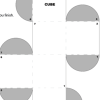
Fold a Crystal
Source Institutions
Rocks are made of minerals, and minerals often have crystal shapes. In this fun activity about geometry in nature, learners create their own crystal shapes out of paper.
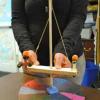
Carousel Pump
Source Institutions
In this activity, learners build a carousel toy that spins when pushed down.

The Geophysical Light/Dark Cycle
Source Institutions
This is an activity (located on page 131 of the PDF) related to sleep and circadian rhythms as well as space travel.
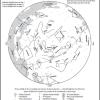
Where Are the Distant Worlds? Star Maps
Source Institutions
This fun hands-on astronomy activity lets learners use star maps (included) to find constellations and to identify stars with extrasolar planets (Northern Hemisphere only, naked eye).
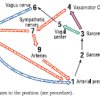
Baroreceptor Reflex Role Play
Source Institutions
In this activity about the baroreceptor reflex (BR) arc (page 123 of the PDF), learners discover the importance of maintaining adequate arterial blood pressure through a role playing exercise.

Measuring Your Breathing Frequency at Rest
Source Institutions
In this activity about the brain and sleep (on page 138 of the PDF), learners measure their resting breathing rates. Learners will discover that breathing frequencies vary amongst individuals.
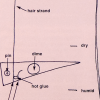
Better Hair Through Chemistry
Source Institutions
In this activity, learners hook up a hair to a lever system and create a hair hygrometer to measure changes in humidity.
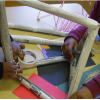
Cells and Walls
Source Institutions
Using toothpicks, straws, or tubes of rolled up newspaper, learners create 3-dimensional models to illustrate the basic structure and function of the cell membrane, and place an object inside to repre

Hold a Hill
Source Institutions
In this outdoor activity, learners investigate the relationship between the slope of a trail and soil erosion.
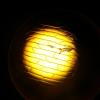
Animal & Plant Cell Slides
Source Institutions
In this activity, learners make slides of onion cells and their own cheek cells. Use this lab to teach learners how to prepare microscope slides and use a microscope.
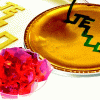
Jell-O Model of Microfluidics
Source Institutions
This activity uses Jell-O(R) to introduce learners to microfluidics, the flow of fluids through microscopic channels.
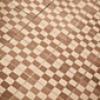
Twisted Tesselations
Source Institutions
In this activity (on pages 41-47 of PDF), learners explore tesselating geometric patterns (repeated shapes, similar to the art of M.C. Escher).
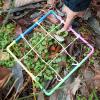
Counting With Quadrants
Source Institutions
Millions of organisms can live in and around a body of water.
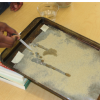
Erosion and Floods
Source Institutions
In this activity, learners create models of erosion and floods and learn to recognize both in their environment.
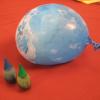
Ice Balloons
Source Institutions
In this activity, learners will explore globes of frozen water to learn how to ask and then answer 'investigable' questions. The activity web page includes a short video demonstration.
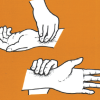
Cardiac Hill
Source Institutions
In this outdoor activity linking human health to the environment, learners use their pulse rates as a measure of the effort expended in walking on different slopes.
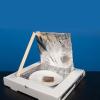
Cook Food Using the Sun
Source Institutions
Learners build a solar oven from a cardboard pizza box, aluminum foil and plastic. Learners can use their oven to cook S'mores or other food in the sun.
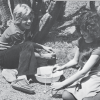
Desert Water Keepers
Source Institutions
In this outdoor, sunny day activity, learners experiment with paper leaf models to discover how some desert plants conserve water.

Musical Sculpting Machine: Squeeze Play-Doh to Make Music
Source Institutions
Play-Doh is conductive! Use the semiconductive qualities of Play-Doh to make your own squeezable instrument. Pico Cricket is required.
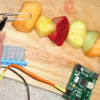
Fruit Xylophone: Fruit Salad Instrument of the Future!
Source Institutions
This is a perfect summertime lunch activity! Pico Cricket is required (micro controller). First, get a bunch of cut up fruit, line them up, then plug a piece of fruit with a Pico Cricket sensor clip.
